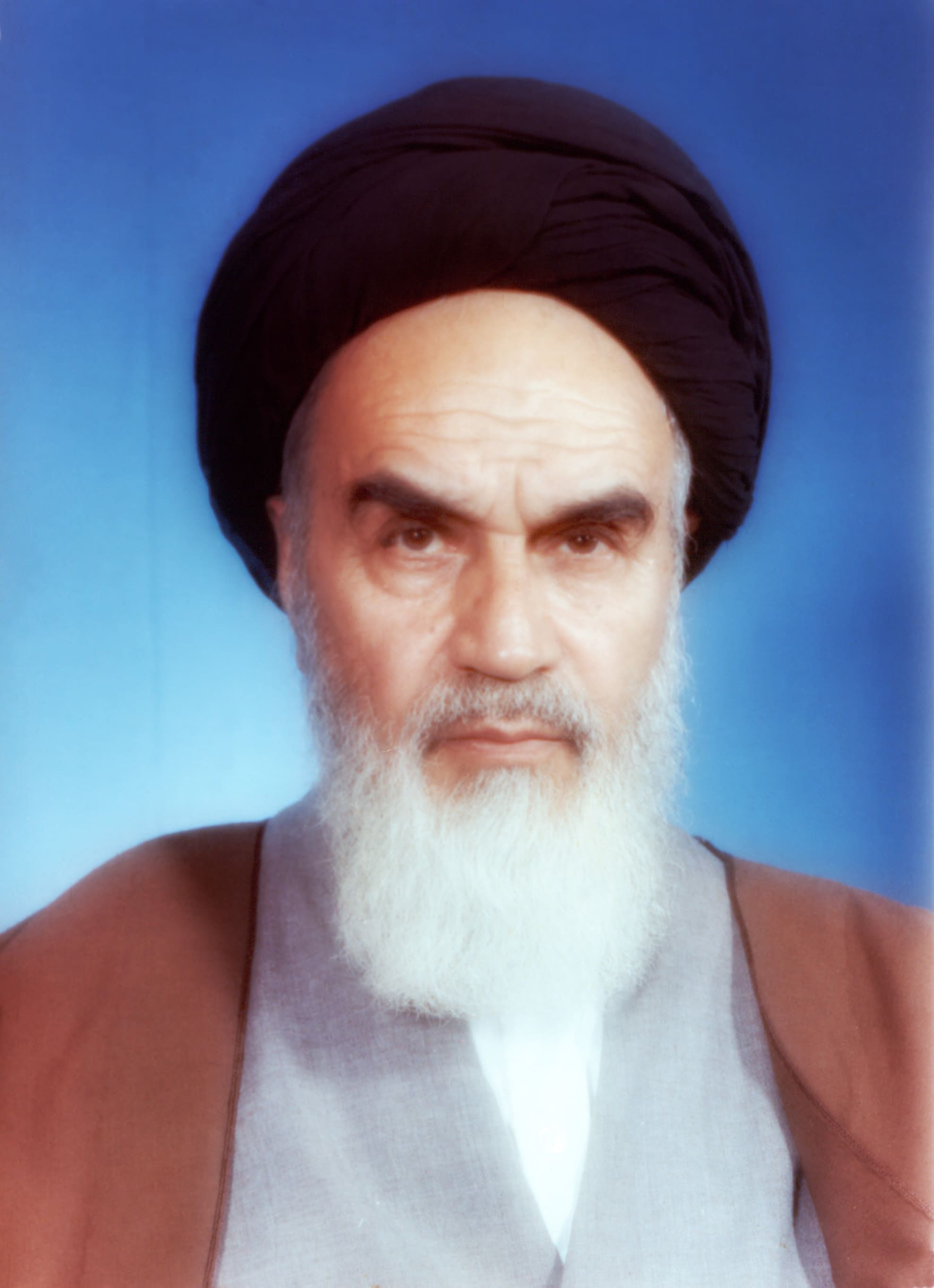Ruhollah Khomeini
 | spoken = Imam Khomeini
| religious = Ayatullah al-Uzma Ruhollah Khomeini
| posthumous =
| alternative =
| image = File:Emblem of Iran.svg
| image_size = 100px
}}
Ruhollah Musavi Khomeini , |, }}}} (17 May 19003 June 1989) was an Iranian cleric, politician, political theorist, and revolutionary who founded the Islamic Republic of Iran and served as its first supreme leader from 1979 until his death in 1989. He was the main leader of the Iranian Revolution, which overthrew Mohammad Reza Pahlavi and transformed Iran into a theocratic Islamic republic.
| spoken = Imam Khomeini
| religious = Ayatullah al-Uzma Ruhollah Khomeini
| posthumous =
| alternative =
| image = File:Emblem of Iran.svg
| image_size = 100px
}}
Ruhollah Musavi Khomeini , |, }}}} (17 May 19003 June 1989) was an Iranian cleric, politician, political theorist, and revolutionary who founded the Islamic Republic of Iran and served as its first supreme leader from 1979 until his death in 1989. He was the main leader of the Iranian Revolution, which overthrew Mohammad Reza Pahlavi and transformed Iran into a theocratic Islamic republic.Born in Khomeyn, in what is now Iran's Markazi province, his father was murdered when Khomeini was two years old. He began studying the Quran and Arabic from a young age assisted by his relatives. Khomeini became a high ranking cleric in Twelver Shi'ism, an ''ayatollah'', a ''marja''' ("source of emulation"), a ''mujtahid'' or ''faqīh'' (an expert in ''fiqh''), and author of more than 40 books. His opposition to the White Revolution resulted in his state-sponsored expulsion to Bursa in 1964. Nearly a year later, he moved to Najaf, where speeches he gave outlining his religiopolitical theory of Guardianship of the Jurist were compiled into ''Islamic Government''.
After the success of the Iranian Revolution, Khomeini served as the country's ''de facto'' head of state from February 1979 until his appointment as supreme leader in December of that same year. Khomeini was ''Time'' magazine's Man of the Year in 1979 for his international influence and in the next decade was described as the "virtual face of Shia Islam in Western popular culture". He was known for his support of the hostage takers during the Iran hostage crisis; his fatwa calling for the murder of British Indian novelist Salman Rushdie for Rushdie's description of Islamic prophet Muhammad in his novel ''The Satanic Verses'', which Khomeini considered blasphemous; pursuing the overthrow of Saddam Hussein in the Iran–Iraq War; and for referring to the United States as the "Great Satan" and Israel as the "Little Satan".
The subject of a pervasive cult of personality, Khomeini held the title Ayatollah and is officially known as Imam Khomeini inside Iran and by his supporters internationally. His state funeral was attended by up to 10 million people, one fifth of Iran's population, and is considered the second-largest funeral in history. In Iran, he is legally considered "inviolable"—insulting him is punishable with imprisonment; his gold-domed tomb in Tehran's Behesht-e Zahra cemetery has become a shrine for his adherents. His supporters view him as a champion of Islamic revival, independence, anti-imperialism, and resistance to foreign influence in Iran. Conversely, he has been criticized for anti-Western and anti-Semitic rhetoric, anti-democratic actions, human rights violations including the 1988 execution of thousands of Iranian political prisoners, and for using child soldiers extensively during the Iran–Iraq War for human wave attacks. Provided by Wikipedia
-
1
-
2